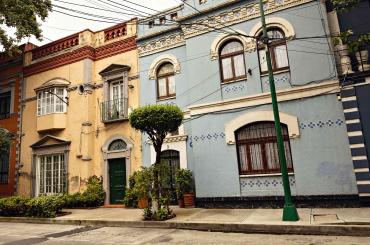

Guillermo Woo-Mora
Ph.D. candidate in Economics at the Paris School of Economics
Ph.D. candidate in Economics at the Paris School of Economics. His research focuses on the political economy of development, historical economics, and cultural and social economics, with a particular emphasis on understanding durable or persistent inequalities. His work explores the long-term effects of colonial segregation on spatial equilibrium within cities and the accumulation of human capital through neighborhood identities. He also studies racial inequalities and discrimination, with a focus on colorism. Additionally, he examines the economic impacts of populist policies on economic activity and the influence of populist leaders on public health outcomes.
Recent work by Guillermo Woo-Mora
-

How colonial segregation policies impact land values in Mexico today
Colonial segregation policies in Mexico City entrenched divisions between Spaniards and indigenous communities, shaping modern economic inequalities because of weak property rights, unequal provision of public goods and enduring social stigma.
Published 20.12.24